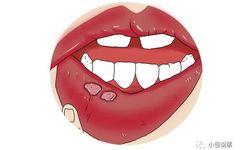When health issues arise, the body exhibits certain signs. Whether in Western medicine or Traditional Chinese Medicine (TCM), any problem does not occur suddenly; there are always signals from the body before or during the onset of the issue. If these signals can be detected early, the problems can be addressed sooner, preventing them from developing into more serious conditions and minimizing bodily harm.
Yin deficiency is a common issue in TCM, yet many people are not well-informed about the symptoms associated with it, which can lead to the problem worsening. To address the issue early, it is essential to have a thorough understanding of the manifestations of Yin deficiency.
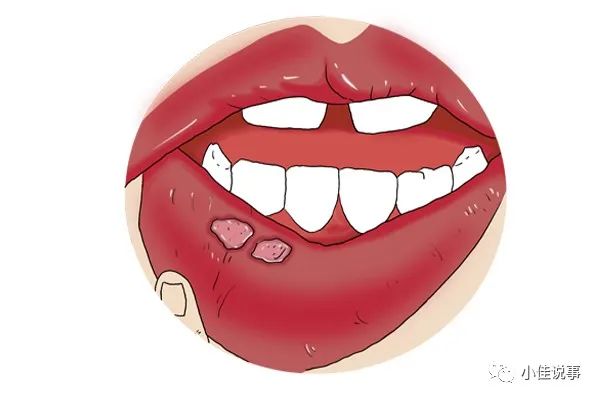
In TCM, it is said that Yin deficiency leads to pain; if there are four areas of pain in the body, early intervention is necessary.
Oral Pain — Oral Ulcers
Some individuals may experience a condition of Yin deficiency with excessive heat, which can disrupt the normal functioning of the organs, particularly the spleen. When spleen function declines, the transformation and transportation of fluids may be impaired, increasing the likelihood of developing oral ulcers. Frequent oral ulcers naturally lead to pain in the mouth.
Of course, there are many causes of oral ulcers, including nutritional deficiencies or damage to the oral mucosa. If these factors are ruled out, one should consider the possibility of Yin deficiency with excessive heat, necessitating timely Yin supplementation and heat reduction.
Throat Pain — Pharyngitis
Yin deficiency can vary in its manifestations, with lung Yin deficiency being quite common. Once this occurs, it significantly impacts the lungs, leading to insufficient moisture and excessive lung heat. Consequently, the throat may not receive adequate hydration, resulting in dryness. Prolonged dryness can lead to throat pain, as well as symptoms like dry cough and throat itchiness. When these symptoms arise, it is essential to nourish the lungs and reduce lung heat.
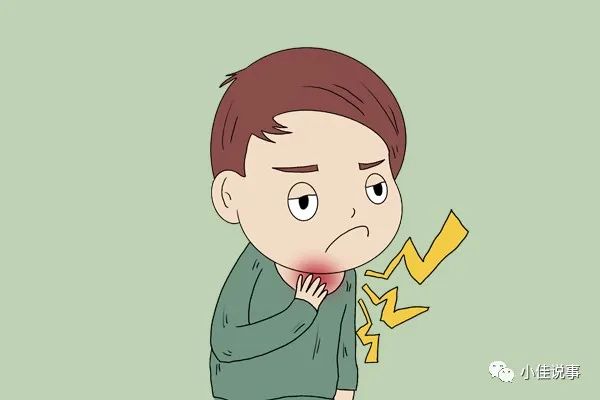
Lower Back Pain — Kidney Yin Deficiency
Kidney Yin deficiency is also a common manifestation of Yin deficiency, and when it occurs, discomfort in the lower back is often quite pronounced. The kidneys are located in the lower back, so any issues with the kidneys can easily affect this area. When Kidney Yin deficiency occurs, kidney function is inevitably compromised, leading to increased burden and resulting in lower back pain and weakness, and even leg weakness. If these symptoms persist over time, they should not be taken lightly.
Rib Pain — Liver Yin Deficiency
Experiencing pain in the ribs often leads most people to suspect skeletal issues or problems with the lumbar spine, which may affect the ribs. Others might think of nearby organs being involved, but it can be challenging to pinpoint the exact organ at fault.
If rib pain is significant, one should consider the possibility of liver Yin deficiency. Excessive strain on the liver can cause damage, and since the liver is located near the ribs, it can irritate the ribs, leading to pain. In addition to rib pain, if there are persistent symptoms like bad breath, bitter taste in the mouth, and dry eyes, it is crucial to assess liver health and make necessary adjustments.
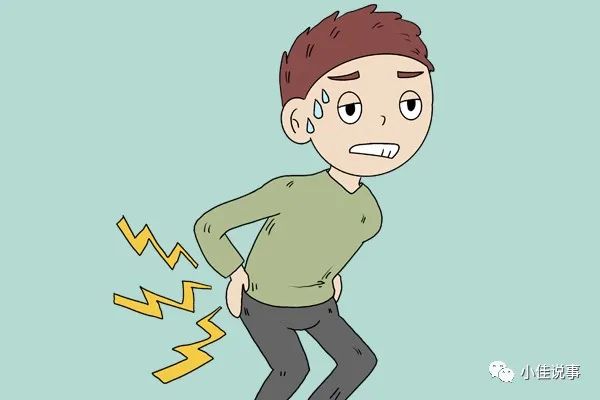
Why is it suggested to supplement Yin during summer, despite it being a season for nurturing Yang?
It is important to understand that Yin and Yang are mutually restraining and must achieve a state of balance. If there is a severe imbalance between Yin and Yang in the body, it can lead to health issues. Summer is considered a time to nurture Yang primarily because many people inadvertently engage in activities that deplete Yang, resulting in insufficient Yang energy. At this time, it is essential to nurture Yang.
However, while nurturing Yang is important, it is also crucial not to allow Yang energy to become excessive, as this would reduce Yin energy and increase the risk of Yin deficiency. In such cases, supplementing Yin becomes very important. To maintain a reasonable balance of Yin and Yang in the body and minimize health issues, appropriate Yin supplementation during summer can be beneficial, at least reducing the occurrence of Yin deficiency.
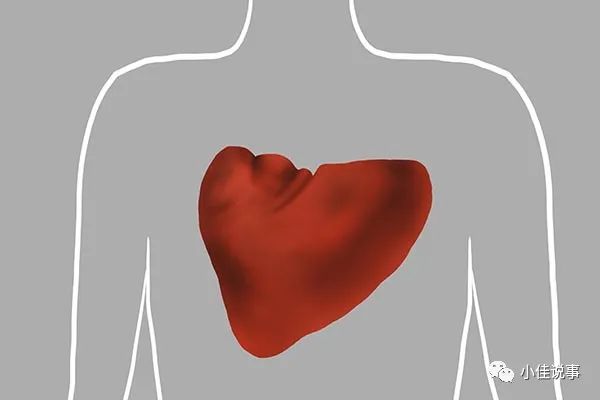
How should one nourish Yin during summer?
First, strengthen the spleen before supplementing Yin
Yin deficiency often arises from poor spleen and stomach function. When the spleen and stomach have issues with transformation and transportation, it can lead to a lack of moisture in the body, as well as problems with food transformation, resulting in insufficient Qi and blood, and nutrients. Over time, this can worsen bodily functions. To minimize bodily harm, it is essential to first nourish the spleen and stomach before supplementing Yin.
Foods that strengthen the spleen and nourish the stomach include Chinese yam (Shan Yao), red beans (Hong Dou), Poria (Fu Ling), and Job’s tears (Yi Yi Ren), which can be consumed appropriately. In addition to eating foods that strengthen the spleen and stomach, abdominal massage can also improve spleen and stomach function and stimulate the spleen and stomach meridians, thus helping to regulate these organs. Furthermore, increasing physical activity can also help nourish the spleen and stomach and improve Yin deficiency.
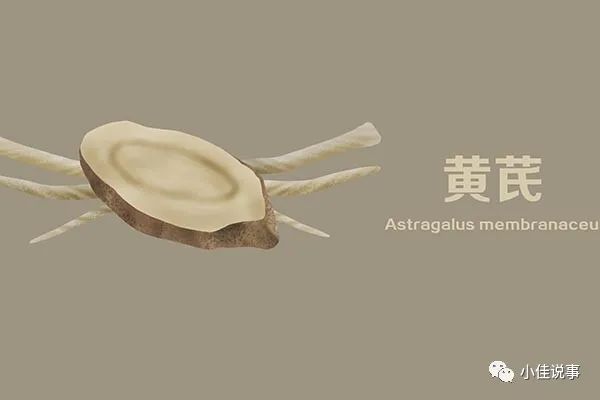
In addition to nourishing Yin by strengthening the spleen and stomach, it is also important to supplement Qi and blood. Foods that nourish Qi and blood should be included, such as ginseng (Ren Shen), astragalus (Huang Qi), jujube (Da Zao), and longan (Gui Yuan), which are excellent choices. While supplementing Qi and blood, it is also beneficial to consume foods that help nourish essence and body fluids, as this will enhance the effects of Yin supplementation. It is recommended to eat more mulberries (Sang Shen), goji berries (Gou Qi), lily bulbs (Bai He), and tremella (Yin Er), as these foods are particularly beneficial for nourishing Yin energy.
Both Yang deficiency and Yin deficiency can pose significant health risks, so maintaining a balance between Yin and Yang in the body is the greatest support for health. Everyone desires to be healthy and suffer less.

